Indian food is a veritable rainbow of tastes, spices, and fragrant herbs that entice the palate and leave a lasting impression. Particularly well-known for their contribution to a nutritious and well-balanced diet are the vibrant and varied foods of Southern India. The southern region of India is referred to as the ‘land of spices and herbs,’ and many of these ingredients offer a great deal of flavour and health benefits.
From the hearty comfort of upma and the savoury goodness of uttapam to the beloved dosa and the perfectly steamed idli, these dishes are delicious and a great addition to a healthy eating regimen. The hallmarks of South Indian cuisine are its rich flavours and aromas, a wide range of ingredients, and healthful cooking methods. Now some of the dishes can be rich and calorie-dense, but a lot of traditional South Indian foods are low in calories plus high in flavour and nutrients. The abundant use of vegetables and other plant-based elements in South Indian cuisine is well known. Numerous health advantages result from this abundance of plant-based ingredients. Vegetables are high in dietary fibre, vitamins, minerals, and antioxidants, which enhance overall health, strengthen the immune system, and aid digestion, according to research. Additionally, research indicates that eating a variety of veggies might increase feelings of fullness, lower calorie intake, and help you maintain a healthy weight.
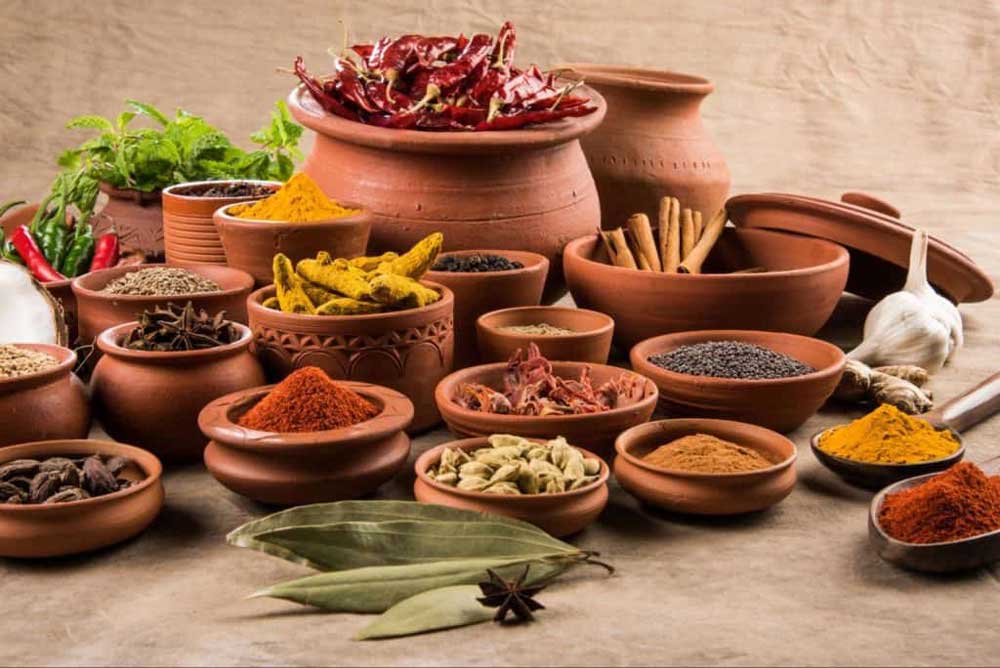
Powerhouse Of Spices
The spices and herbs used in the preparation of South Indian cuisines enhance the flavour of each dish, and also have therapeutic qualities. For instance, turmeric is a staple in South Indian cooking, which contains curcumin. Studies indicate that curcumin is a strong anti-inflammatory agent. Additionally, research indicates that curcumin improves metabolic health, lowers inflammation, and helps people manage their weight, among other health benefits. Other spices that have been linked to improved digestion and aid in weight loss include cumin, coriander, and mustard seeds.
Fermentation
The use of fermented foods is prevalent in South Indian cooking. For instance, probiotic-rich meals are made through the process of fermenting. These include foods such as idli, dosa, kanji and other rice-based cuisines. Probiotics are good bacteria that improve digestion, strengthen immunity, and support gut health. Studies have indicated a connection between increased metabolic efficiency, decreased inflammation, and weight management and a healthy gut microbiome. Consuming foods that have undergone fermentation can help maintain a healthy gut ecosystem, which is essential for overall health.
The following delicacies are ideal for weight watchers, and can be enjoyed as a light breakfast, healthy snack, or filling meal.
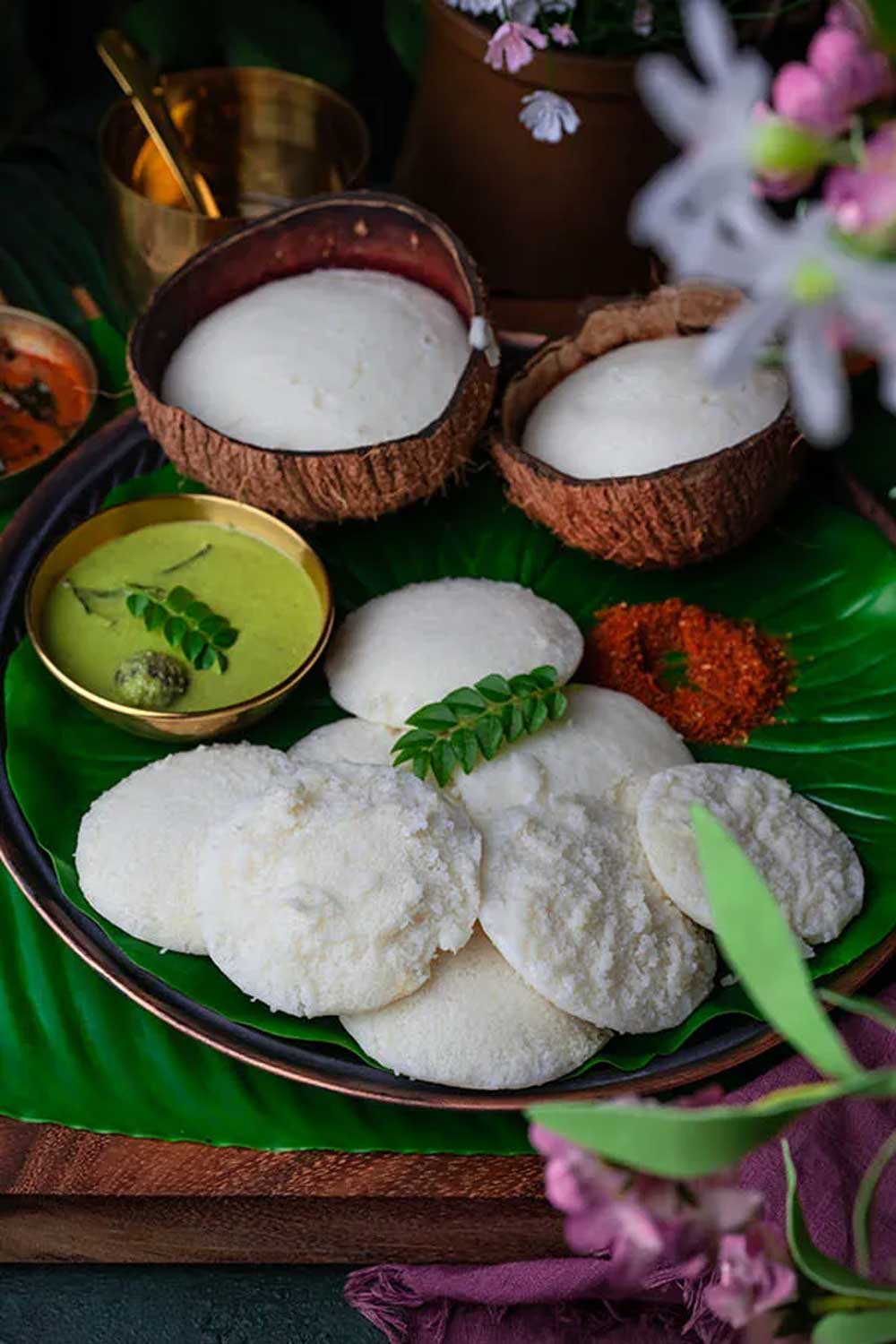
Idli: This is a steamed rice cake made with fermented rice and urad dal (black gram). It is low in calories, easy to digest, and is an excellent source of protein and carbs. It contains about 39 calories when eaten without chutney or sambhar.
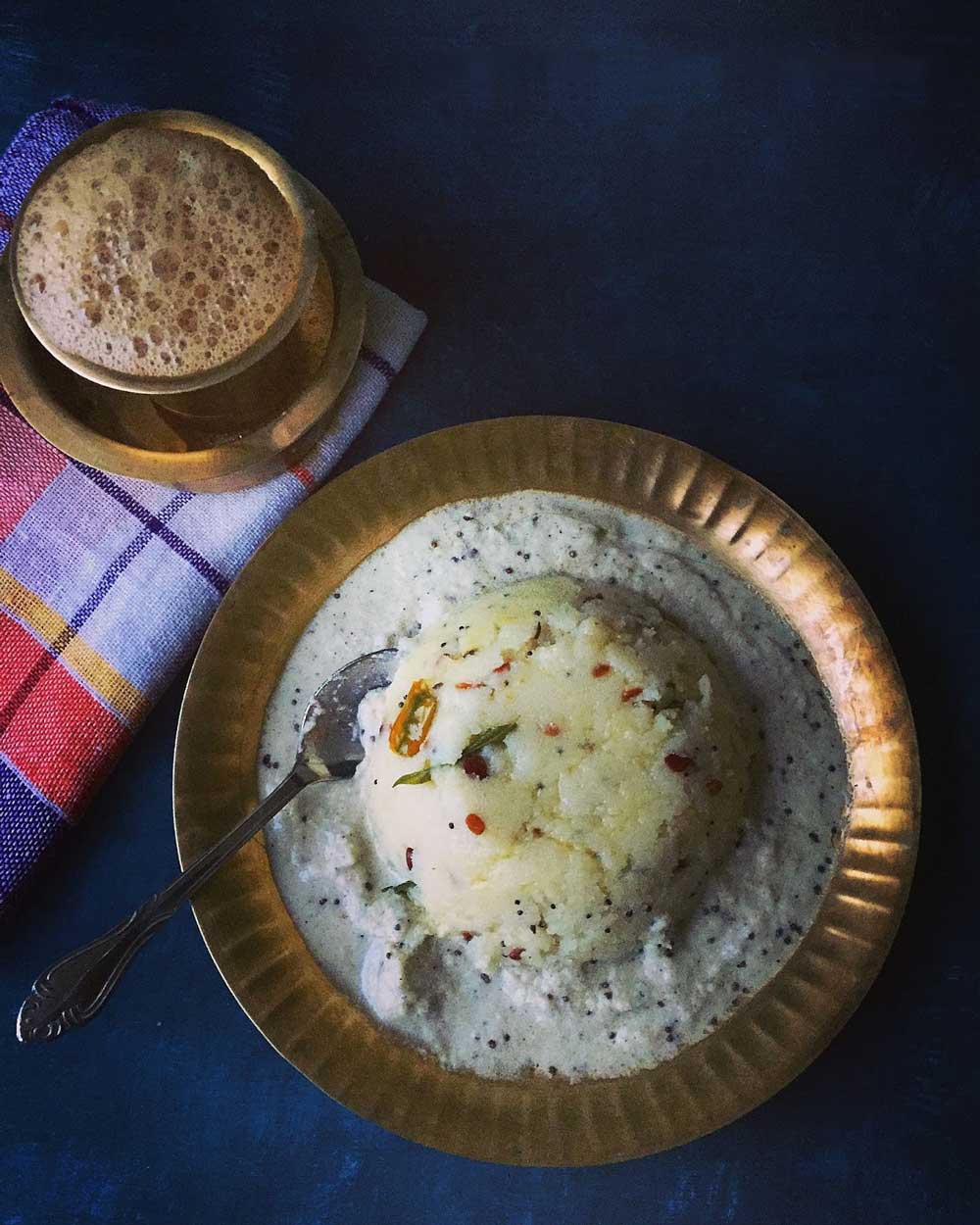
Upma: A serving of upma contains about 150 calories. This savoury porridge is flavoured with spices, veggies, and occasionally nuts, made with dry-roasted semolina, or rava. It is a filling and nutritious breakfast choice that is low in calories.
Pesarattu: Each pesarattu contains roughly 100 - 120 calories. This classic pancake is a healthier variant of the dosa, made with rice batter and green gram (moong dal). It’s low in calories, high in protein, and often served with coconut or ginger chutney.
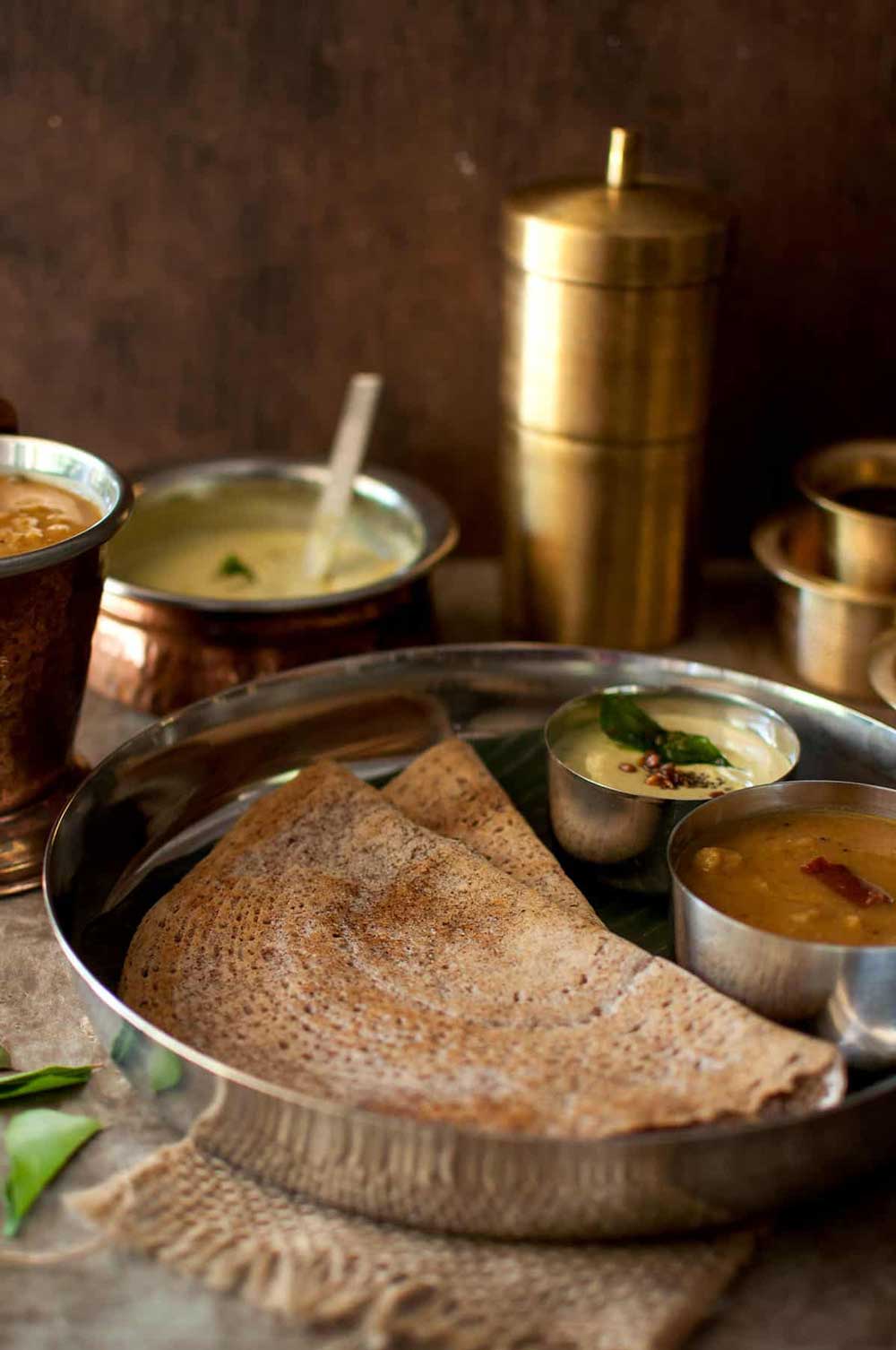
Ragi Dosa: It contains about 80 - 100 calories each. Ragi dosa is produced using urad dal and finger millet flour (ragi), which is then fermented to a batter consistency and cooked into a thin crepe. It is rich in fibre, gluten-free, and a good source of calcium.
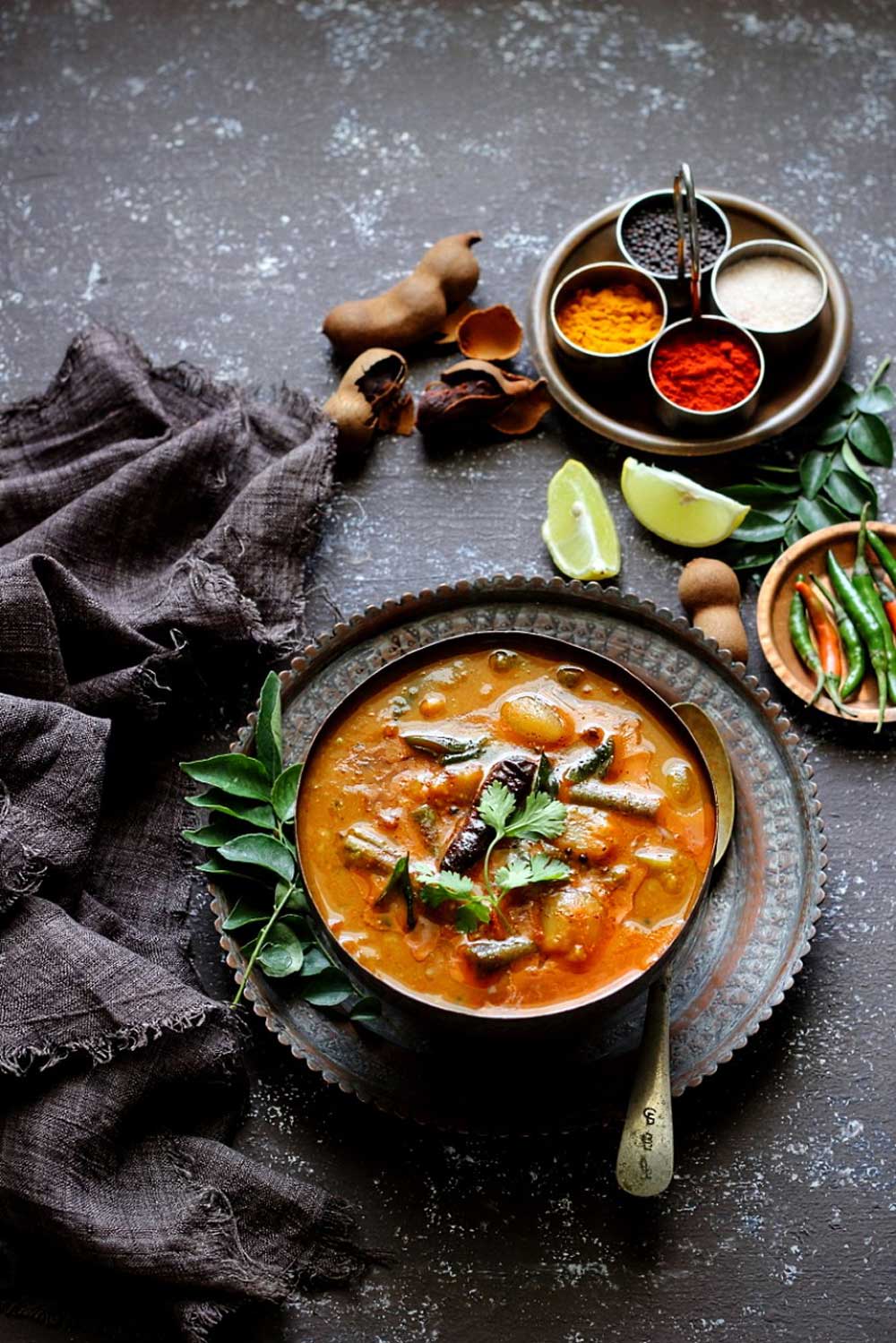
Vegetable Sambhar: A serving of vegetable sambhar contains about 60–80 calories. It is a lip-smacking lentil-based stew with vegetables such as potatoes, carrots, and drumsticks. It is low in calories, high in fibre and provides with essential vitamins and minerals.
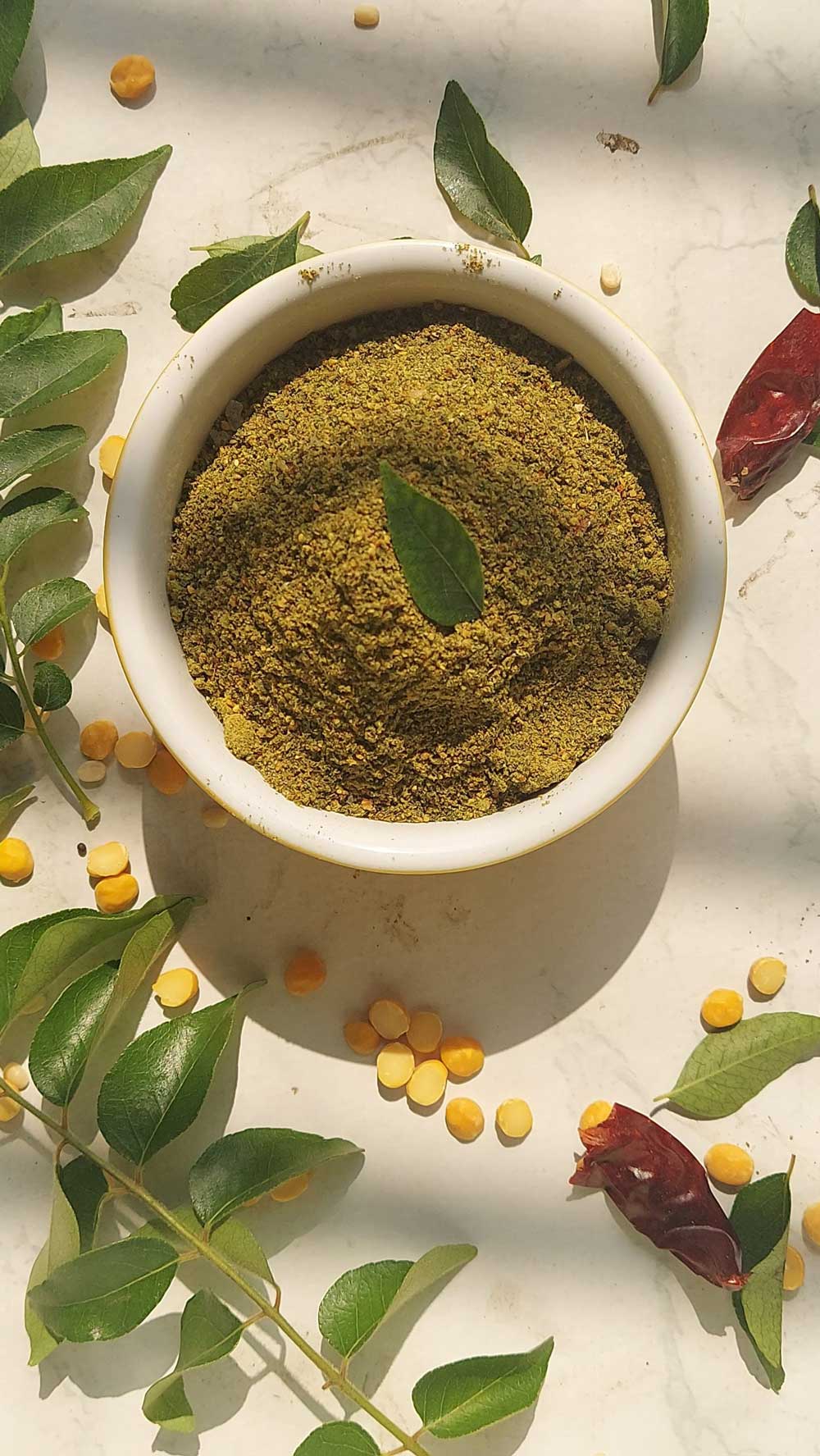
Curry Leaves Podi (powder): A tablespoon of curry leaves podi contains about 20–30 calories. Roasted lentils, curry leaves, and spices are combined and ground together to make this granular dry chutney powder. This is a highly adaptable condiment that enhances flavour without adding a lot of calories to your meal.
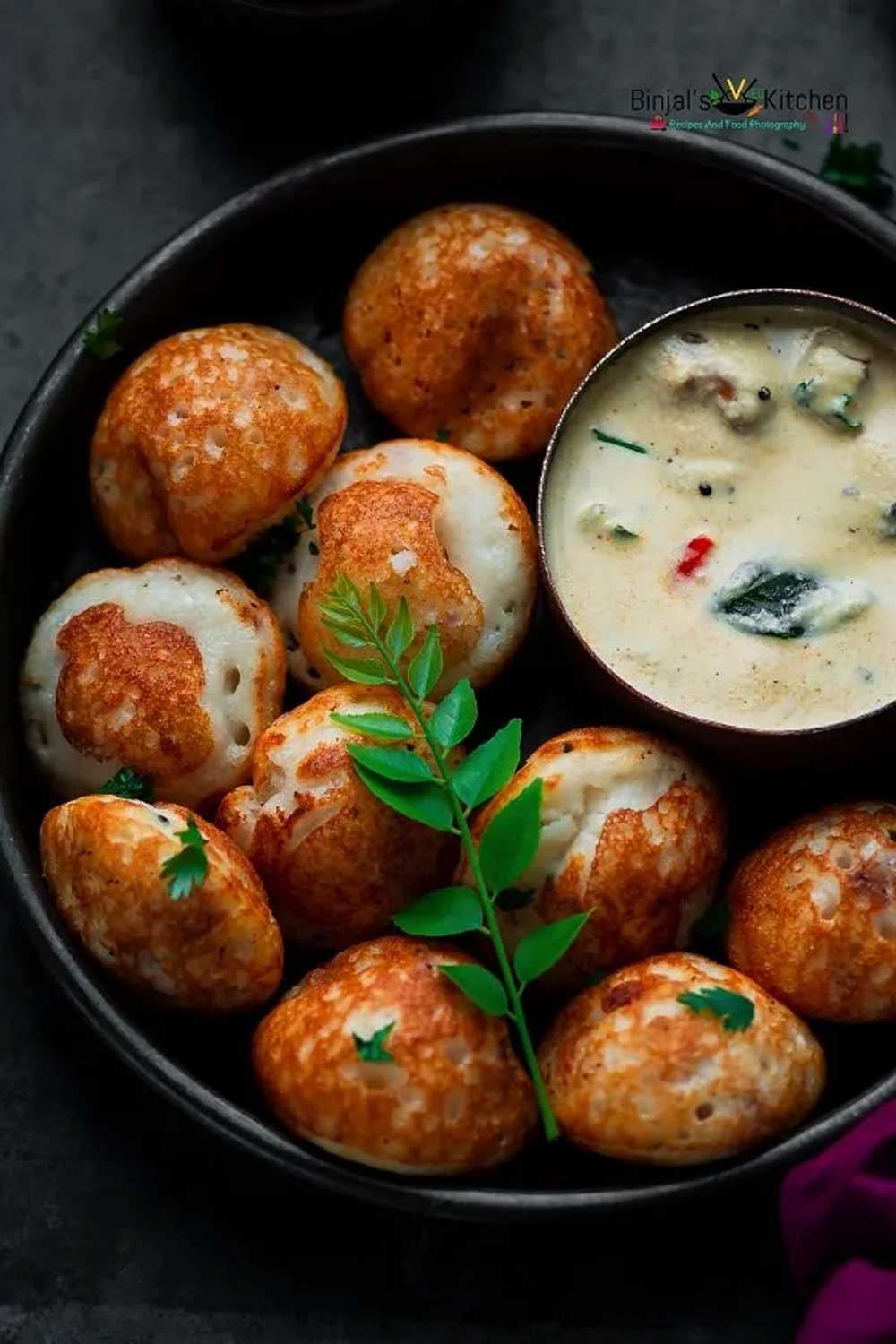
Kuzhi Paniyaram: Each kuzhi paniyaram contains roughly about 50–60 calories. These are dumpling-like savouries prepared in a unique pan using fermented rice and lentil batter. They can be eaten for breakfast or as a snack as they are light and easy to digest.
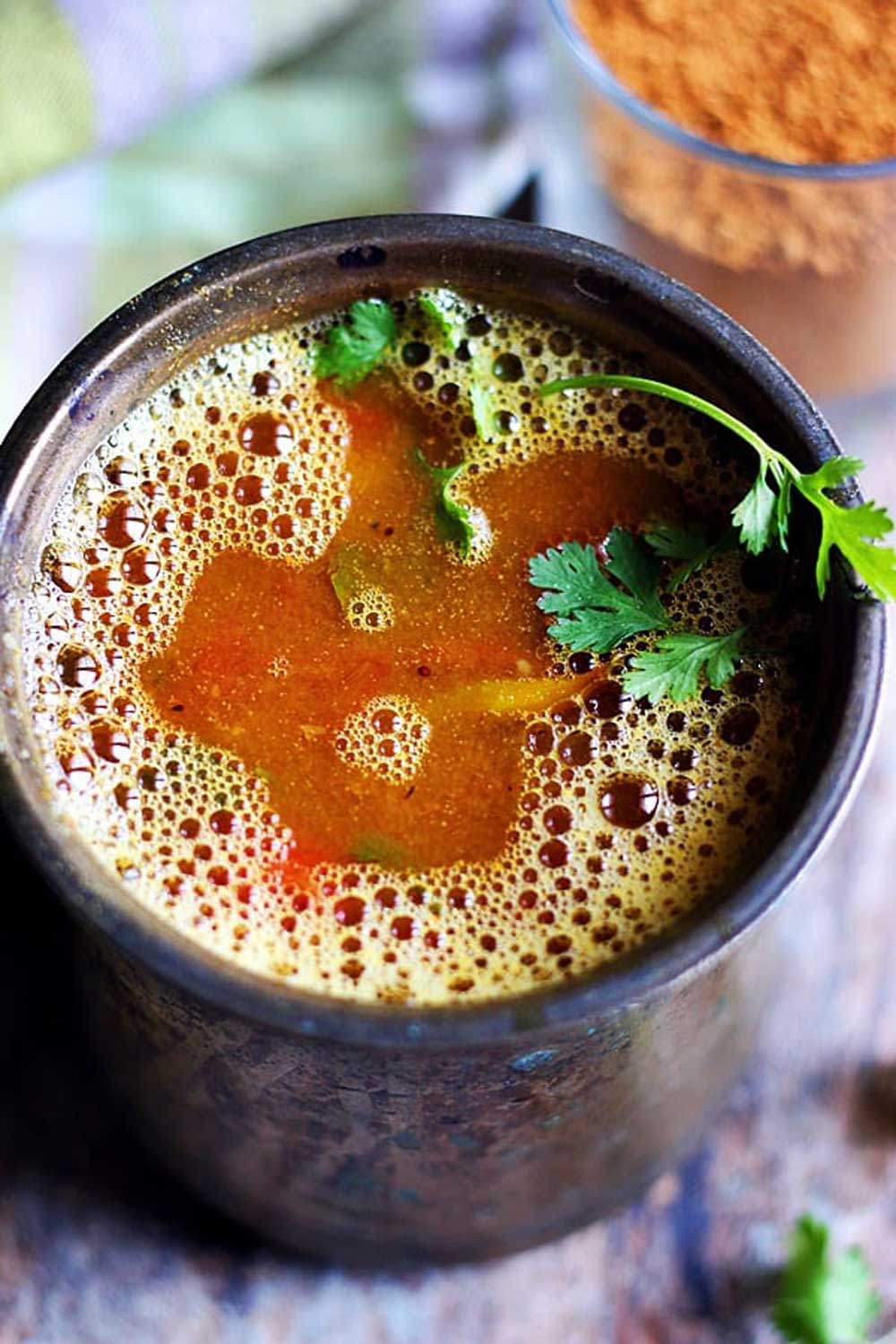
Rasam: A tart soup made using tamarind, tomato, and spices, rasam is high in nutrients and low in calories. A serving contains 59 calories. Additionally, the tangy soup is known to have therapeutic qualities that boost immunity and aid in digestion.
Images source: India Today, Binjal Kitchen, Cookshideout, Easy foodsmith, Sizzling tastebuds